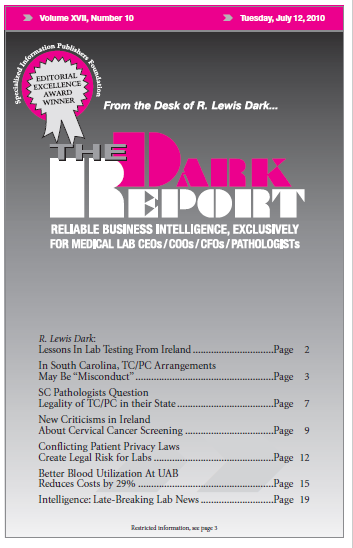CEO SUMMARY: Recently the South Carolina Society of Pathologists (SCSP) requested that the state’s Board of Medical Examiners review the legality, under state law, of certain technical component/professional component (TC/PC) arrangements between referring physicians and pathologists. SCSP asked that the Board assess how TC/PC arrangements might violate state law, constitute illegal fee splitting, compromise patient …
SC Pathologists Question Legality of TC/PC in State Read More »
To access this post, you must purchase The Dark Report.


